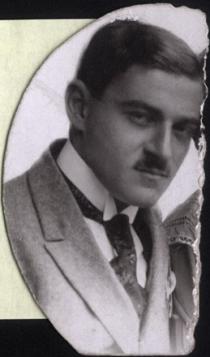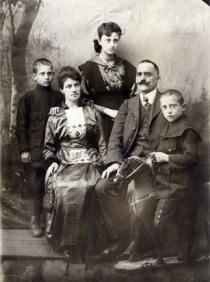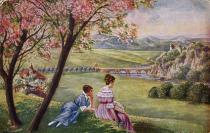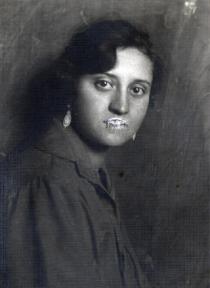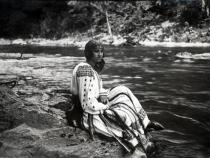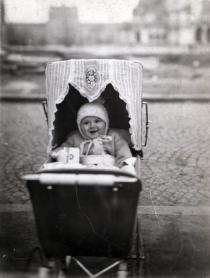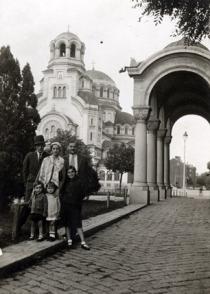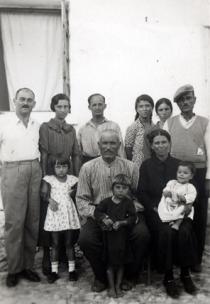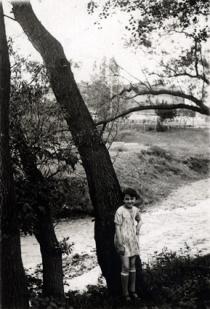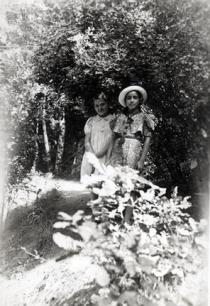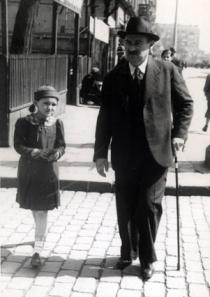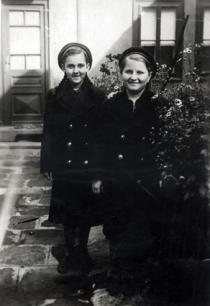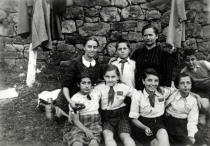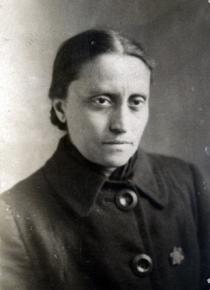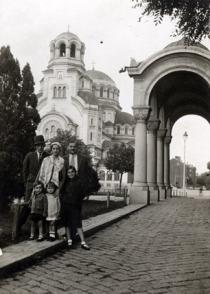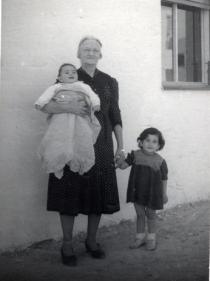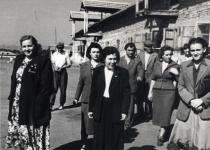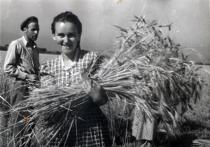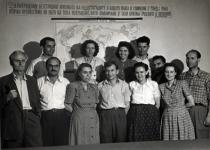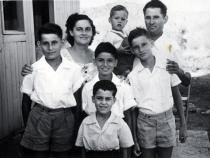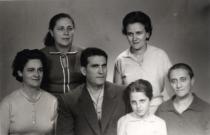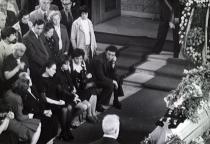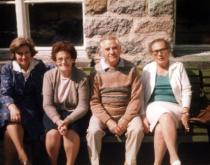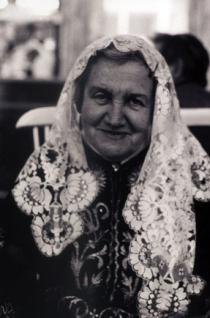In the photo are my grandfather Isak Beniesh with his second wife Dzhamila and the three children from the first marriage of grandpa to granny Sarah (nee Eroham).
Next to grandpa, on the right is Nisim - my mother's brother, on the other side, standing is my mum Elvira. Next to her is her other brother, Mois Beniesh. There is no stamp of a photo shop or inscription on the back. It was taken in Vidin or Sofia. The year is 1919. My mother Elvira lived with that family for six years.
The second wife of my grandfather, Djamila, was born in 1880. There is no information about the time of her death. [She] got married for the first time to my grandfather when she was 38. At that time my mother was 16, Mois was 11 and Miko (Nisim) was 8. Dzhamila couldn't conceive in the first two years of the marriage and looked after her three stepchildren very well. Afterwards she gave birth to three more children - Sarika, Clara and Solomon. (I don't have reliable information as to the years of their births. I only know that Sàrah - Sarika - was born in 1920.) The appearance of her own children changed Dzhamila's attitude towards her stepchildren. From her stepchildren she loved Mois the most. His brothers and sisters from the second marriage also loved him very much and long after they grew up and left for Israel they went on calling him uncle Mois. My mother was the one who felt worst of all in the family.
There had always been some tension in the relationship between her and Dzhamila. On the one hand, it appeared because grandpa married her too soon, only forty days after granny Sarah died and, on the other hand, grandpa made my mother give the jewels, which were left to her by her mother Sarah, to Dzhamila. Eventually, she gave them, but this gave an edge to the relationship between her and her father Isak. (The third reason was that Dzhamila used to be a beautiful, domineering woman, very religious. She had special requirements for the food and even later, when she visited us she didn't have anything to eat because she had doubts as to whether the food had been prepared according to all religious requirements. She had imposed the same order in the family that was new to her. At that time the family was already living in Sofia. I don't know any details about their life but my mother told me that the family had a difficult existence because grandpa didn't earn very much and it was difficult to provide for the six children. The poor way of living and the strained relations were a torture for my mother and she used to feel very depressed at home. That's why she didn't call her stepmother 'mum' for a long time. Not until much later, during one of our visits to Israel in 1960, when Dzhamila was already living in a kibbutz, did my mother call her 'mum' and granny Dzhamila, deeply moved, allowed herself a bite of the cake, which my mother had prepared and afterwards expressed satisfaction that she had prepared it 'very cleanly'. Only then did their relation get warmer.

